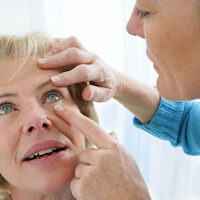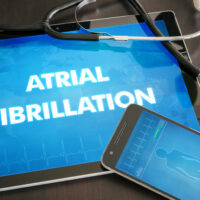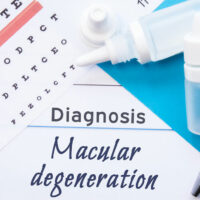8 Benefits of Dental Implants for Seniors

People must adapt to numerous lifestyle adjustments as they get older. That does not, however, imply that one’s current lifestyle and enjoyment must be sacrificed. No matter their age, a person can carry on living the way they desire as long as they receive excellent care. Additionally, since a person’s appearance, especially their teeth, is one of the most noticeable alterations that can occur, tooth loss can be easily treated with dental implants.
What are dental implants?
Dental implants are screw-shaped artificial tooth roots. Professional dentists place a dental implant next to the natural root of the tooth in the jawbone. As a result, a base—also known as the crown—is constructed to support the prosthetic teeth. The dental implant is then covered with an abutment or connector to hold the crown in place. It is important to understand that dental crowns are constructed especially to fit each individual’s mouth and match their teeth. One of the most comfortable dental procedures available is having an implant placed. They are, without a doubt, the simplest ways for seniors to recreate the appearance and chewing function of their original mouths.
8 essential benefits of using dental implants for seniors
Prevents loss of bone mass
It is normal for people to lose bone mass as they age. Some bone mass is taken from the jaw when teeth are lost. This is because the jawbone needs continual stimulation from teeth to maintain its original bulk. But because dental implants are affixed to the jaws, they are the only tooth replacement option that can replace the function of the jawbone’s natural stimulation.
More comfortable than dentures
The enjoyment of having natural teeth is other-worldly. However, dental implants can mimic a very similar experience. Dental implants are designed to act as natural teeth, so one can easily expect them to feel and fit better than removable dentures.
Over time, most elderly people complain about having loose dentures. Dental implants, however, won’t slip or shift out of place because they are permanently injected into the jawbone. Dental implants can be expected to sit firmly all day long without having to remove them at night or fret about wearing them once more whenever the need arises.
For seniors, a comfortable fit can mean the difference between getting dental implants or dentures. This is because it is inherently more challenging to get the dentures to fit securely over time, mainly because of bone loss. But, as dental implants prevent bone mass loss when installed, a person can enjoy a fixed and comfortable set of teeth without worrying about adjusting.
Restores eating capabilities
With the help of dental implants, one can restore one’s chewing and biting abilities. Most seniors face problems when eating, especially when they have experienced tooth loss since the process triggers irritation and pain. But, when the chewing and biting capabilities are restored, they can start eating any food they want.
Eating all types of food items will generally enhance nutrient intake, thereby improving overall health. Additionally, proper chewing of food also leads to improved digestive health.
Cost-effective
When comparing dentures with dental implants, the former will always require regular maintenance since dentures are more prone to breaking. On the other hand, dental implants are a permanent solution and a one-time investment. As a result, one can expect to enjoy long-term benefits with dental implants, making them a highly cost-effective option.
Improves self-esteem and appearance
There is no denying that a person’s smile and teeth play a significant role in one’s overall appearance. For instance, if one has a missing tooth, one will be more reluctant to smile since one will be afraid that people might notice the same. Not to mention, having a missing tooth can alter a person’s facial structure by collapsing it inward, ultimately making one look much older than one truly is.
But, with the help of dental implants, one will be able to enjoy the function as well as the look of a natural tooth. Such a scenario will make a person feel more outgoing and confident because a person will already know that one’s smile will be unaffected and overall health will be maintained.
Enhances oral hygiene
It should be known that dental implants will not impact any nearby teeth for support, thereby keeping the rest of the teeth intact, which can be highly advantageous for older people. Additionally, dental implants also provide easy access between teeth, which means daily brushing will keep a person maintaining their teeth in good condition since the brush bristles will reach every nook and cranny. As a result, long-term oral health will be improved.
Dental implants are convenient
Over time, dentures have become an old-fashioned way to wear false teeth. Not to mention that they can be hazardous and annoying because of their tendency to discolor and slip. Dental implants, on th e other hand, can assist seniors with a natural look and feel without creating any difficulty while eating or sleeping. Additionally, unlike dentures, dental implants do not require special maintenance and cleaning.
Does not decay
Dental implants are the way to go if one wants artificial teeth to last forever. They are created from materials immune to decay, so one does not have to worry about them being infected with bacteria buildup or decay. However, a person still has to take care of dental implants just like one would take care of their natural teeth.
Conclusion
Whether looking to replace single or multiple teeth, dental implants will always be a great choice. One can always get dental implants to replace missing teeth, regardless of age. Also, the healing process occurs as soon as the operation is completed. However, senior patients will require 4–5 weeks of extra care for recovery compared to younger individuals.





